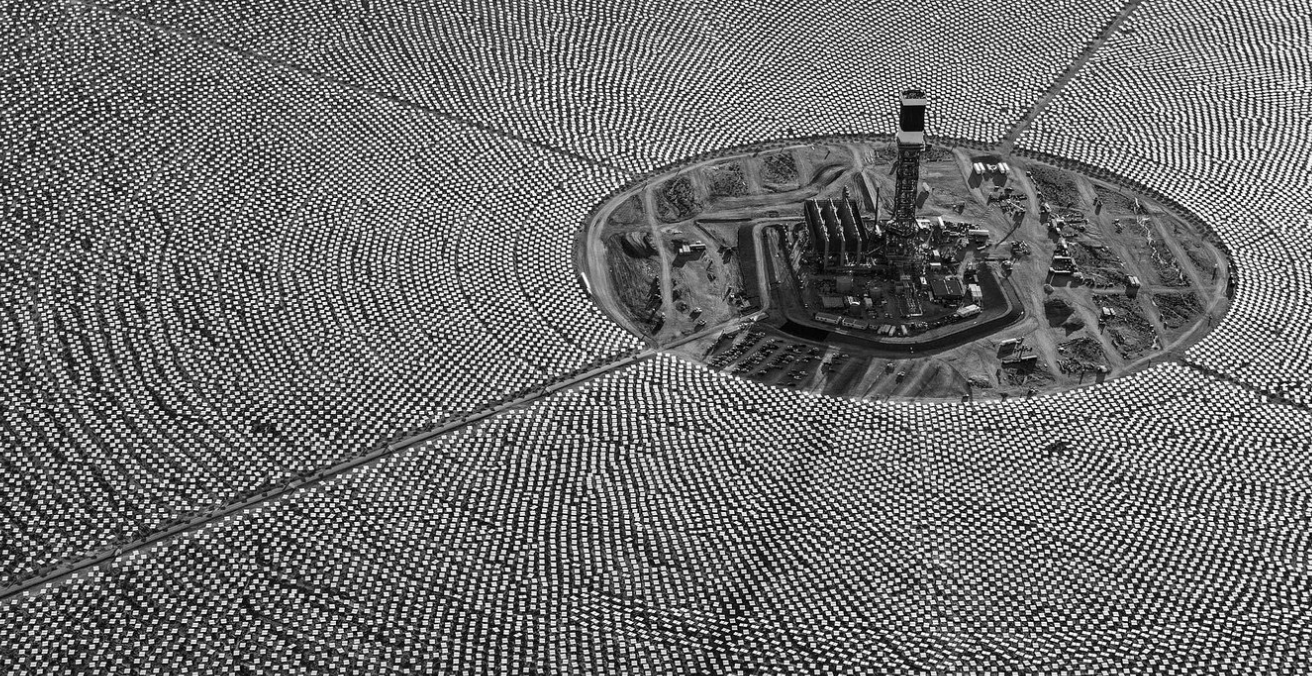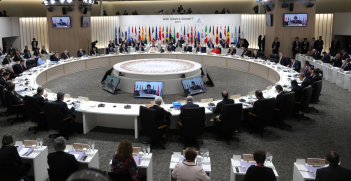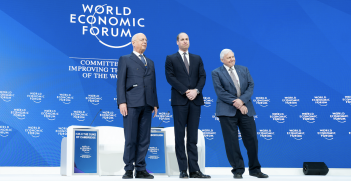A Green New Deal: The Rebirth of American Leadership?

A Green New Deal has long been championed by many on the left as the answer to tackling climate change. Can a new generation of Congress now overcome the old guard to bring this big idea to life?
The idea of American leadership has become something of an oxymoron. Whatever you may think of President Donald Trump’s personal qualities, his administration is perhaps the most dysfunctional and chaotic in recent history – possibly ever. Domestic politics in the United States have become synonymous with populism, polarisation and dysfunction. The idea that the government could play a useful, necessary and constructive role is becoming unimaginable.
Unfortunately for friend and foe alike, Trump’s impact has inevitably undermined the liberal international order the United States did so much to create in the aftermath of the Second World War. His disdain for international cooperation and his mantra of “America first” is the antithesis of all that the United States represented for more than half a century.
Consequently, this might seem an unlikely time to be looking to America for inspirational ideas about the future of the United States, let alone the world. But it is important to remember that only a minority of Americans are rusted-on Trump supporters, and it is still one of the most dynamic societies on the planet. For better or worse, America has pioneered many of the values, institutions, technologies and social movements that have shaped the contemporary world.
The new Democratic member of the House of Representatives, 29-year-old Alexandria Ocasio-Cortez, has come to symbolise the continuing possibilities and potential of American democratic politics, and not just because of her age and gender. On the contrary, she has electrified the American political scene primarily because she has a big idea just when they seemed to have gone out of fashion.
The idea of a “Green New Deal” (GND) has been around for a while, without gaining much attention or traction. In part, this was because it was ahead of its time: climate change had not impinged on the consciousness of enough people to make it a game-changing political issue. In part, the GND failed to launch because it lacked a credible and articulate champion. Now it has one.
Some people remain in furious denial about climate change despite the overwhelming scientific consensus about its causes and consequences, not to mention the evidence of our own eyes. It’s getting harder and harder for the skeptics to ignore the mounting evidence about the growing and accelerating impact of global warming, which opens a space for much needed new thinking about an unprecedented global problem. Enter AOC, as she is known to her legion of primarily young supporters.
The GND is premised on the idea that, like the original New Deal developed by Franklin D Roosevelt in the 1930s, the United States faces a crisis that only decisive government action can address. In the current era, the GND seeks to create a more sustainable economic model within 10 years based on 100 percent renewable energy, and simultaneously address America’s growing economic inequality, which the Trump administration’s tax cuts for the super-wealthy have entrenched.
Given that one of Trump’s many unfulfilled election promises was to do something about the embarrassing state of America’s domestic infrastructure, you might have thought there would be popular support for AOC’s ideas. Retrofitting the domestic economy along more sustainable lines by investing in energy efficiency, developing mass transit systems, “smart” electricity grids, wind and solar power and advanced biofuels looks like an idea whose time has come – unless you’re in thrall to the coal lobby, of course.
Unfortunately, it is not just the climate-denying, pro-coal Republican Party that is not sympathetic to AOC, though. On the contrary, Democrats on the Energy and Commerce Committee are unhappy about having their position and power threatened by young usurpers demanding action rather than endless deliberation that maintains the unsustainable status quo.
In this context, AOC and her youthful supporters may be butting heads with an even more implacable obstacle: the gerontocracy that clings to the levers of power on both sides of American politics. Nancy Pelosi, the veteran Speaker of the House of Representatives, is also unenthusiastic about giving meaningful support to a new generation of politicians, other than ritual declarations about the need to “do something.”
It is hard to escape the conclusion that this much older generation whose motivating ideas and attitudes were formed half a century ago – when no one knew what climate change was – simply don’t get it. AOC and her generation, by contrast, unambiguously do: they’ve grown up with the very real prospect of apocalyptic climate change hanging over their heads and blighting their collective futures.
Eventually, a new generation will be in charge. The worry is that by then it may be too late to implement policies that could still – possibly – make a real difference. We must hope they get a chance to do something constructive and creative, not simply trying to cope with the problems their elders bequeathed them. They might even restore America’s battered international reputation in the process if they do.
Mark Beeson is the AIIA Research Chair, Professor of International Politics at the University of Western Australia and author of Environmental Populism: Could It Save the World? (Palgrave, forthcoming).
This article is published under a Creative Commons License and may be republished with attribution.





